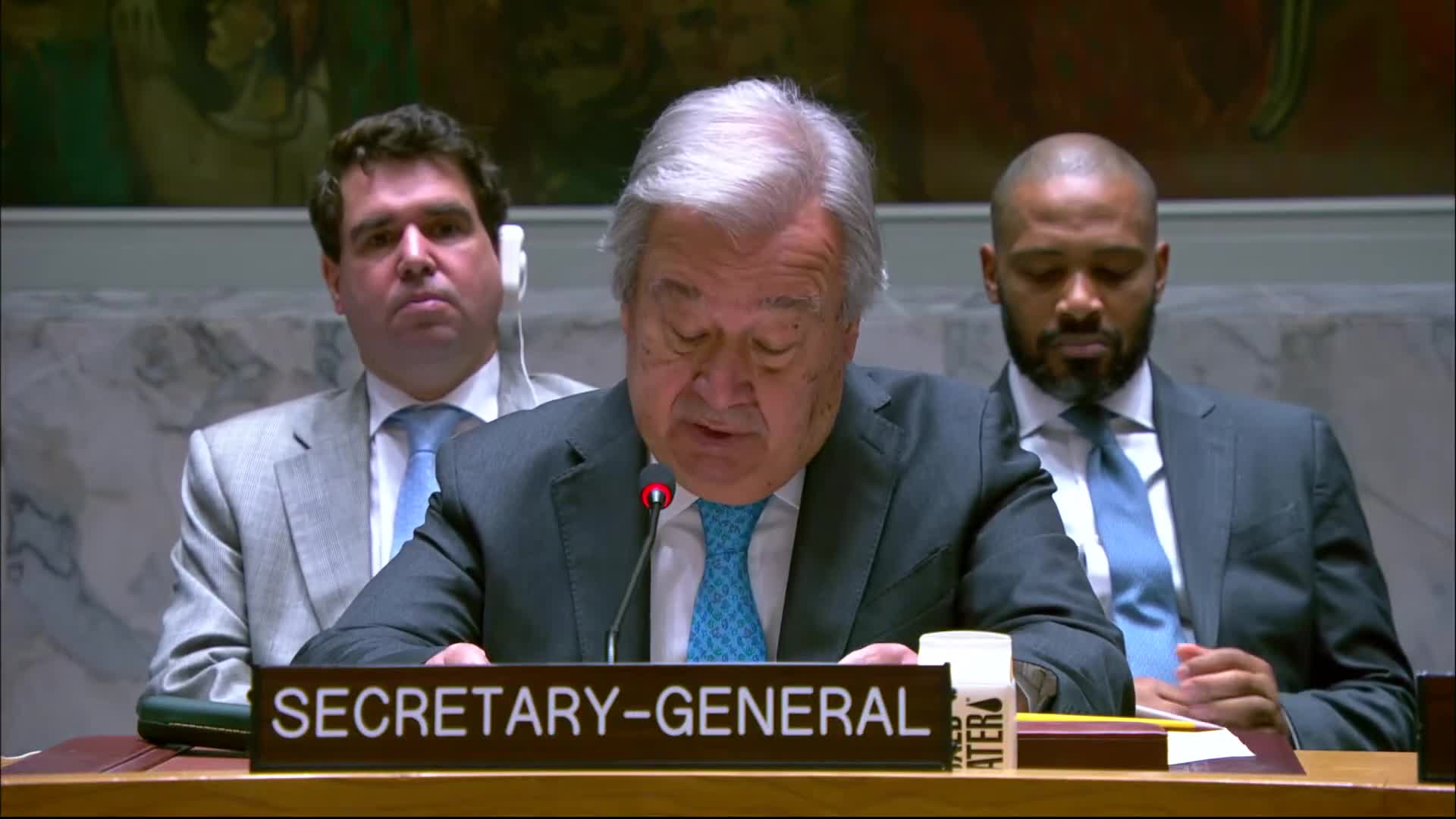US strikes Iranian nuclear sites escalate Middle East conflict amid calls for diplomacy
June 22, 2025 | United Nations, Federal
This article was created by AI summarizing key points discussed. AI makes mistakes, so for full details and context, please refer to the video of the full meeting. Please report any errors so we can fix them. Report an error »

In a critical meeting of the United Nations Security Council on June 22, 2025, discussions centered around escalating tensions in the Middle East following recent military actions by the United States against Iranian nuclear facilities. The U.S. strikes on key sites, including Fordow, Natanz, and Isfahan, have raised alarms about a potential wider conflict in a region already fraught with instability.
The meeting highlighted the urgent need for diplomacy to prevent further escalation. A representative emphasized that the bombing represents a dangerous turn, warning that the region cannot endure another cycle of destruction. The call for immediate and decisive action to halt fighting and return to negotiations on Iran's nuclear program was echoed throughout the discussions. The representative stressed the importance of a credible and verifiable solution that includes full access for International Atomic Energy Agency (IAEA) inspectors.
The backdrop of the meeting included ongoing hostilities between Israel and Iran, which have intensified following the U.S. military actions. Reports indicated that the Islamic Revolutionary Guard Corps (IRGC) retaliated by launching missiles at Israel, resulting in injuries and damage to civilian infrastructure. Israeli military responses have also led to significant casualties in Iran, with reports of hundreds of civilian deaths and injuries.
The potential for further conflict was underscored by statements from Iranian officials and allied non-state groups, who threatened retaliation against U.S. involvement. The Iranian parliament expressed unanimous support for measures that could disrupt maritime navigation through the Strait of Hormuz, a crucial route for global energy supplies.
The meeting concluded with a strong call for all parties to adhere to international law and prioritize peaceful resolutions. The representative reiterated that there is no military solution to the conflict, urging for diplomacy, de-escalation, and confidence-building measures to restore stability in the region. The discussions reflect a critical moment for international relations, as the world watches closely for the next steps in this escalating crisis.
The meeting highlighted the urgent need for diplomacy to prevent further escalation. A representative emphasized that the bombing represents a dangerous turn, warning that the region cannot endure another cycle of destruction. The call for immediate and decisive action to halt fighting and return to negotiations on Iran's nuclear program was echoed throughout the discussions. The representative stressed the importance of a credible and verifiable solution that includes full access for International Atomic Energy Agency (IAEA) inspectors.
The backdrop of the meeting included ongoing hostilities between Israel and Iran, which have intensified following the U.S. military actions. Reports indicated that the Islamic Revolutionary Guard Corps (IRGC) retaliated by launching missiles at Israel, resulting in injuries and damage to civilian infrastructure. Israeli military responses have also led to significant casualties in Iran, with reports of hundreds of civilian deaths and injuries.
The potential for further conflict was underscored by statements from Iranian officials and allied non-state groups, who threatened retaliation against U.S. involvement. The Iranian parliament expressed unanimous support for measures that could disrupt maritime navigation through the Strait of Hormuz, a crucial route for global energy supplies.
The meeting concluded with a strong call for all parties to adhere to international law and prioritize peaceful resolutions. The representative reiterated that there is no military solution to the conflict, urging for diplomacy, de-escalation, and confidence-building measures to restore stability in the region. The discussions reflect a critical moment for international relations, as the world watches closely for the next steps in this escalating crisis.
View full meeting
This article is based on a recent meeting—watch the full video and explore the complete transcript for deeper insights into the discussion.
View full meeting